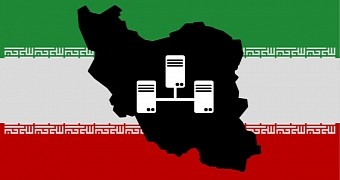Iran officials have announced the completion of the first stage of a three-phase plan to create a contained national Internet for the people in the country, completely separated from the rest of the World Wide Web.
Authorities announced this crazy plan in 2010, which very few believed they would pull off.
The first stage of this project was to create a self-standing network that would allow fast and cheap access to government services and domestic web pages. BBC reports that this first stage was supposed to be operational last year, in 2015, but it was delayed for various technical reasons.
Two more phases to follow in 2017
The second phase of Iran's national Internet plan is due in February 2017, when the country's Communications and Information Technology Ministry is set to enable access to video content.
The third and final phase will complete a month later, in March 2017, when Iran will introduce new services aimed at allowing companies involved with international trade to access and deliver content to Iranians.
Authorities said their plan for a local Internet would allow its intelligence and defense agencies to repel cyber-attacks much more easily.
Around-the-clock surveillance is much easier this way
What authorities didn't say is that this plan would also allow them to spy on citizens and control the content they access online.
Iran has been very actively censoring its citizens and the way they use the Internet. Only last week, authorities arrested 450 social media users for "immoral activities" on Instagram and WhatsApp.
Iran, just like China, blocks several services inside the country, such as Facebook, Google+, YouTube, or Twitter. Also, just like in China, Iranians use proxies and VPNs to skirt around these limitations.
A homegrown local Internet network would not allow Iranians to go around these blocks because they won't have a connection to the outside Internet to connect to.
In 2006, Reporters Without Borders included Iran in a list of countries that the organization considers Enemies of the Internet. The list also includes 18 other countries, mostly oppressive regimes, and as of 2014, the US and the UK.

 14 DAY TRIAL //
14 DAY TRIAL //